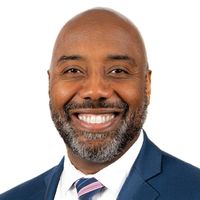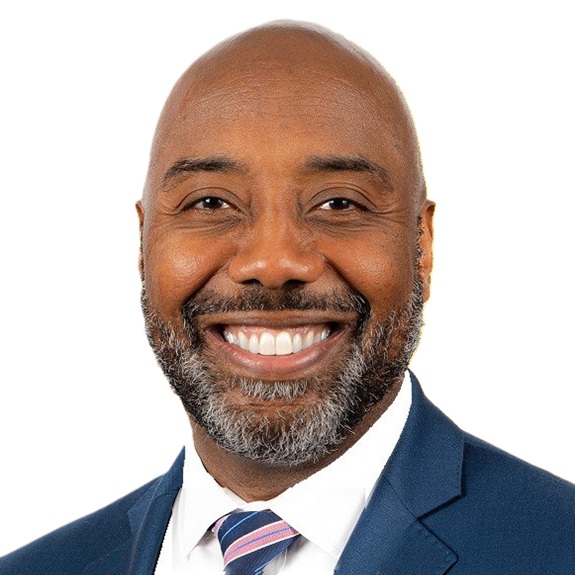10 Key Things to Think About in Your New Year Financial Planning
2023 is set to be a tough year economically. Here’s how to get your financial and life plans in the best possible shape.


Profit and prosper with the best of Kiplinger's advice on investing, taxes, retirement, personal finance and much more. Delivered daily. Enter your email in the box and click Sign Me Up.
You are now subscribed
Your newsletter sign-up was successful
Want to add more newsletters?
There's no escaping the fact 2023 is going to be challenging, but focusing on financial planning for the new year could help.
From soaring inflation and rising interest rates to the ongoing effects of the pandemic and war in Ukraine, we can expect the economic landscape to remain predictably unpredictable for the foreseeable future.
Yet, while there’s not much we can do to influence the global macroeconomic and geopolitical picture, there are plenty of ways to ensure our own finances are robust enough to deal with whatever the next 12 months bring.
From just $107.88 $24.99 for Kiplinger Personal Finance
Become a smarter, better informed investor. Subscribe from just $107.88 $24.99, plus get up to 4 Special Issues

Sign up for Kiplinger’s Free Newsletters
Profit and prosper with the best of expert advice on investing, taxes, retirement, personal finance and more - straight to your e-mail.
Profit and prosper with the best of expert advice - straight to your e-mail.
From cold hard math to close relationships, here are 10 things to consider in your financial plans as we head toward the new year:
1. Audit Your Beneficiaries.
Now's a good time to go through all your savings accounts, insurance and retirement plans to make sure your designated beneficiary – i.e., the person or people the money passes to in the event of your death – for each one is still who you want it to be.
2. Take Advantage of Higher Limits in Your Withholdings.
Increasing your withholding percentage by 9.76% will allow you to continue to max out your 401(k) savings opportunity in 2023. For example, if you earned $250,000 in 2022 and maxed out your contribution as a 49-year-old or younger, you would have a withholding percentage of 8.2% (saving $20,500 for the year). To take full advantage of the increased limit of $22,500, plan to increase that from 8.2% to 9% in 2023 (a 9.76% increase).
Meanwhile, if you’re 50 or over, the appropriate percentage increase to your annual withholding rate is 11.1% to take full advantage of the new $30,000 limit. If you didn’t max out your 2022 contribution, you should also consider increasing whatever your withholding level was by 10% in January or by 2.5% per quarter so it reaches 10% by the end of 2023.
3. Make the Most of your HSA.
A health savings account (HSA) lets you set aside money on a pre-tax basis to pay for any qualified medical expenses you incur. It’s also the last triple-tax-exempt investment vehicle available. Make sure you're taking advantage of it.
4. Decide How to Use Your Social Security Wage Base “Pay Rise.”
In 2023, Social Security will take 6.2% of your salary up until you've earned $160,200. So, if you earn $200,000, 6.2% will be deducted from your monthly paycheck until you hit that $160,200 base (if you earn $200,000 a year, your monthly salary is $16,667, so this will take approximately 10 months).
After that, Social Security stops coming out, essentially giving you an automatic “pay rise” of $1,033 a month in November and December (6.2% of your monthly salary of $16,667).
Rather than just let that money disappear into your daily spending, think about intentionally investing it in savings. The more you make, the sooner and larger this pay rise will be. Doing this over the course of a whole career, it could become a considerable nest egg!
5. Leverage Your RMD.
The government’s required minimum distribution (RMD) regulations require you to begin drawing down on any IRAs or 401(k) savings the year you turn 72. These payments are subject to tax.
So, if you already have enough money to fund your lifestyle, why not plan to use your RMD to invest directly in a charity instead? You’ll be supporting a cause you’re passionate about without paying tax on the money.
6. Invest in Self-Care.
Looking after our physical and mental health has never been more important, so put time and money aside at the beginning of the year to fund self-care. In particular, try to plan at least one long break (a week or two) as well as three shorter ones of, say, four to five days. You can use that time to recharge your engine. This could even be a smart way to use the automatic “pay rise” we talked about in tip No. 4.
7. Review Your Parents' Plans.
It's tough to think about, but there may come a time when your parents can no longer take care of themselves. It's therefore a good idea to talk to them now about their financial portfolio and how they want their affairs to be managed in the future. That way, there’s less likely to be any unpleasant surprises that impact your own plans further down the line.
8. Get Your Kids Involved.
In the same way you need to understand your parents' plans, it's a good idea to ensure your children understand yours – if they're old enough to take it all in, of course! Have an open conversation with them about your financial situation as well as the values, causes and ethics you believe in and would like to see them follow after you’re gone.
9. Decide What Relationships to Focus On.
Most of us wish we had more time to spend with friends and family but find the busyness of modern life gets in the way. Now is therefore the perfect time to reflect on the people you managed to see enough of in 2022 — and those you didn’t. You can then plan how you're going to invest your time and energy into nurturing the relationships that are important to you next year.
10. Turbocharge Your Savings if You're a Business Owner.
One very effective way to stay ahead of inflation is to save more. If you're a business owner and have sufficient cash flow available, you should consider investing in a cash balance plan.
This would allow you to save as much as $343,000 in addition to your 401(k) and profit-sharing contribution. Remember, contributions to a cash balance plan, properly structured, are fully tax deductible, making it a great way to accelerate your savings and build your retirement nest egg!
Profit and prosper with the best of Kiplinger's advice on investing, taxes, retirement, personal finance and much more. Delivered daily. Enter your email in the box and click Sign Me Up.

Stephen Dunbar, Executive Vice President of Equitable Advisors’ Georgia, Alabama, Gulf Coast Branch, has built a thriving financial services practice where he empowers others to make informed financial decisions and take charge of their future. Dunbar oversees a territory that includes Georgia, Alabama and Florida. He is also committed to the growth and success of more than 70 financial advisers. He is passionate about helping people align their finances with their values, improve financial decision-making and decrease financial stress to build the legacy they want for future generations.
-
 Turn a $1 Million Nest Egg Into a Lifetime Income Machine
Turn a $1 Million Nest Egg Into a Lifetime Income MachineThe paychecks may stop, but the income shouldn't. Master the art of the "income machine" to fund your dream retirement.
-
 2 Ways to Invest if You're Risk Averse But CDs Don't Cut It
2 Ways to Invest if You're Risk Averse But CDs Don't Cut ItInvestors looking for higher yields might want to consider these hybrid products, which blend the possibility of better returns with less downside risk than traditional investing.
-
 A Simple Clue Unlocked a Workplace Safety Crisis
A Simple Clue Unlocked a Workplace Safety CrisisA lot of people with hearing issues resist wearing hearing aids. "Nicole" had a very good reason not to wear hers, but figuring out why took some sleuthing.
-
 Risk-Averse But OK With More Risk Than a CD? These 2 Options Could Work for You
Risk-Averse But OK With More Risk Than a CD? These 2 Options Could Work for YouInvestors looking for higher yields might want to consider these hybrid products, which blend the possibility of better returns with less downside risk than traditional investing.
-
 How a Simple Clue Unlocked a Workplace Safety Crisis: All We Had to Do Was Listen
How a Simple Clue Unlocked a Workplace Safety Crisis: All We Had to Do Was ListenA lot of people with hearing issues resist wearing hearing aids. "Nicole" had a very good reason not to wear hers, but figuring out why took some sleuthing.
-
 Are You Honest With Your Financial Adviser? Why Hiding the Truth Can Cost You
Are You Honest With Your Financial Adviser? Why Hiding the Truth Can Cost YouHiding assets or debt from a financial adviser damages the relationship as well as your finances. If you're not being fully transparent, it's time to ask why.
-
 5 Actions to Set Up Your Business With Your Exit in Mind, From a Wealth Adviser
5 Actions to Set Up Your Business With Your Exit in Mind, From a Wealth AdviserWhen you're starting a business, it may seem counterintuitive to begin with exit planning. But preparing will put you on a more secure footing in the long run.
-
 Missed Your RMD? 4 Ways to Avoid Doing That Again (and Skip the IRS Penalties), From a Financial Planner
Missed Your RMD? 4 Ways to Avoid Doing That Again (and Skip the IRS Penalties), From a Financial PlannerIf you miss your RMDs, you could face a hefty fine. Here are four ways to stay on top of your payments — and on the right side of the IRS.
-
 What Really Happens in the First 30 Days After Someone Dies (and Where Families Get Stuck)
What Really Happens in the First 30 Days After Someone Dies (and Where Families Get Stuck)The administrative requirements following a death move quickly. This is how to ensure your loved ones won't be plunged into chaos during a time of distress.
-
 AI-Powered Investing in 2026: How Algorithms Will Shape Your Portfolio
AI-Powered Investing in 2026: How Algorithms Will Shape Your PortfolioAI is becoming a standard investing tool, as it helps cut through the noise, personalize portfolios and manage risk. That said, human oversight remains essential. Here's how it all works.
-
 A Newly Retired Couple With a Portfolio Full of Winners Faced a $50,000 Tax Bill: This Is the Strategy That Helped Save Them
A Newly Retired Couple With a Portfolio Full of Winners Faced a $50,000 Tax Bill: This Is the Strategy That Helped Save ThemLarge unrealized capital gains can create a serious tax headache for retirees with a successful portfolio. A tax-aware long-short strategy can help.